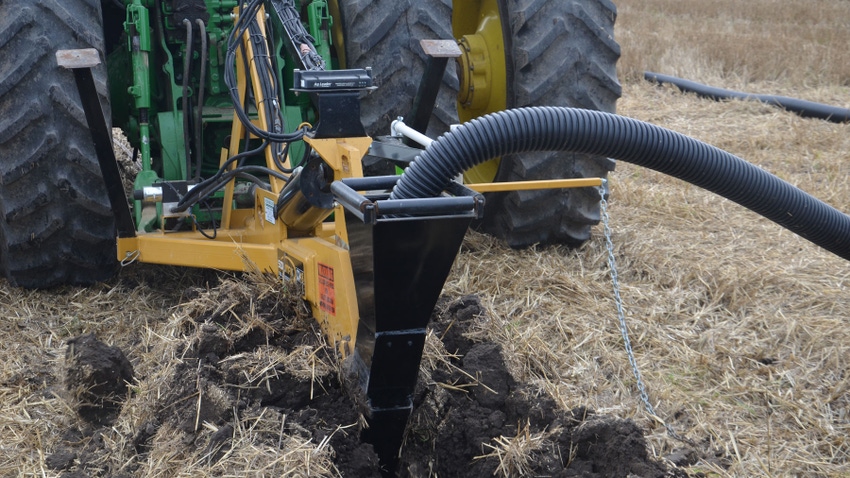
Ask Adam Schwering; his brother, Curtis; and their dad, Steve, about tiling fields and they all get smiles on their faces. Why? Because each one knows it’s something they do that yields a big return on investment each and every time.
“You can see the difference and know the benefit is there,” Adam explains. The Schwerings, who farm near Rushville, Ind., note that while their land is productive, most of it is naturally on the wet side. Tiling it properly can make a big difference in how quickly they can get in the field, and in what kind of numbers they see on the yield monitor.
“Tiling is a big deal for us, and we bought our own tile plow for that reason,” Adam says. “We do as much as we can when we can.”
Their goal is to eventually pattern-tile all fields that need it. That means even tiling higher ground that lies within a field.
Normally, they tile on 60-foot centers, but when necessary, they tile on 50-foot centers.
Can you afford to tile rented farmland?
Could you pay to tile rented land if the landowner can’t?
Steve Myers, a farm manager with Busey Ag Resources, LeRoy, Ill., has dealt with this situation successfully many times. Here are his answers to possible questions:
How can the tenant earn a return? The tenant should realize higher income through improved yields, providing a return on investment over time.
Should the tenant require a long-term lease? I don’t like long-term leases. If either party dies, it creates ownership and farm sale issues. I prefer amortization. It’s simple and clean. If the lease is terminated or either party dies, amortization reflects how much the landowner or heirs would owe the tenant or heirs.
How would amortization work? Say the tenant spends $50,000 on tile and they agree to a 10-year amortization. Each year the tenant would have $5,000 removed from a credit to his or her ledger.
They part company after five years. There is $25,000 of “credit” remaining. The landowner would pay the tenant the remaining balance of $25,000.
Couldn’t both parties agree to reduce cash rent by $5,000 each year for 10 years? Giving up $5,000 of rent likely won’t appeal to the landowner. Also, it doesn’t account for the tenant benefiting from increased yields.
Once land is tiled, should the tenant pay more rent? Even though the tenant fronted expenses, rent would be market value that year. Consider a flex lease. A larger crop would reflect in a higher overall rental rate.
Are there tax implications? Yes. The tenant could claim tiling as an expense. Visit your certified public accountant for specifics.
What is most important in this scenario? Talking it out ahead of time!
Read more about:
TilingAbout the Author(s)
You May Also Like




